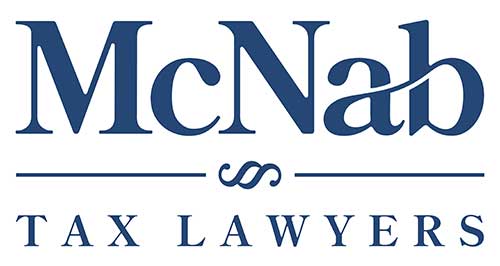Happy 2024!
What lies ahead this year in Australian tax?
At the start of another year lets remember some of the matters that were on hand at the end of last year and which should be progressed this year. Some of them quite quickly!
Progress with cases!
There are probably about 15 tax cases working their way through the Federal Court system at the moment. But I think some are more interesting than others.
Will there be an appeal from the decision in PepsiCo of 30 November 2023? (read more)! The judgement has now been “finalised”, which starts the 28 day clock running for any filing of an appeal. We should expect to hear before 19 January 2024 whether the taxpayer has decided to lodge an appeal. Even before any appeal, the judgement contains important lessons for taxpayers about “royalty free” use of intellectual property assets, and the risk that part of the consideration in a transaction for goods or services might actually be a royalty. And if there is a royalty, there are important lessons about how to identify and brief expert valuers (not transfer pricing experts) to resolve the dispute successfully. But the judgement also contains the first consideration of our Diverted Profits Tax, which differs from the UK rules of the same name. And it is clear that tax planning outside Australia may trigger our DPT. The judgement gives us still more insights into the management of expert witnesses in Australian tax litigation and presents taxpayers with a vivid picture of the choice between “a rock and a hard place” they face in a DPT dispute.
Clients have already started considering whether there is intellectual property in their Australian operations which might be affected, and how they evaluate the risk associated with the issue.
Similar issues seem to be raised by the appeal by Coca-Cola, which has its first case management hearing in the Federal Court of Australia on 31 January. More details of the ATO position will be available then. The matter may be heard this year. There would seem to still be much ground still to be explored in such disputes, and it will be interesting to see how Coca-Cola presents some of the questions that the Court in PepsiCo answered for the Commssioner.
Oracle’s appeal in its transfer pricing dispute may progress this year with a hearing set for 2 September on an interlocutory issue. It seems likely it will have significant implications for the whole sector.
We are also expecting judgements in the Federal Court cases involving Minerva (a stapled struc ture, appeal decision pending), Mylan (cross border acquisition financing, decision pending), Singtel (transfer pricing on a loan variation) and Ausnet (tax consolidations mixed with valuations issues).
Interestingly, PwC’s dispute with the ATO over privilege remains open as well. The initial judgement, holding only about 40% of the documents the court examined were privileged, related to a sample of about 100 documents of the nearly 15,000 total in dispute.
Progress with legislation!
We now have several pieces of “pending” legislation where the commencement date has passed, or is close, and where there is no final legislation. While, sadly, this is not uncommon in Australia it is still appalling and an embarrassment.
The proposal for mandatory public tax transparency related to public country by country reporting (page 197 MYEFO budget papers: chrome-extension://efaidnbmnnnibpcajpcglclefindmkaj/https://budget.gov.au/content/myefo/download/08_App_A_WEB.pdf) is expected to commence 1 July 2024. There is still no draft legislation released for public comment.
The Multilational Tax Integrity Package – denying deductions for payments relating to intangibles held in low or no-tax jurisdictions draft legislation was still said to have a start date of 1 July 2023 in the 13 December 2023 MYEFO papers (see link above). Again, we have not seen updated legislation which we were told would “better target the measures”.
Australia has committed to implementing the 15% Global minimum tax (Pillar Two) measures for years commencing on or after 1 January 2024, but no draft legislation to implement this has been released. Taxpayers are working through the OECD material in order to understand whether they are likely to face any impact from the measures. The Income Inclusion Rule (IIR), Under Taxed Profits Rule (UTPR), and Domestic Minimum Tax (DMT) are also to be introduced with the same date of effect (the UTPR deferred to 1 January 2025, and its interaction with the “intangibles deduction” measures mentioned above being uncertain).
The draft legislation implementing new interest limitation/thin capitalisation rules were referred to the Senate Economics Legislation Committee before Christmas. It is expected to report by 5 February 2024. The provisions contain new debt deduction creation rules and change the basis of our thin capitalisation system.
Progress with ATO rulings!
The two key items below will be publicly released this week. I will update my clients with detailed comments this week. Contact me directly at paul.mcnab@mcnabtaxlawyers.com if you would like to receive my comments or discuss these publications.
The tortuous progress of the draft ruling that is TR 2021/D4 continues. It was originally issued in 2021 for comment, after several year of consultation prior to that. It is now showing as being released this Wednesday 17th at 2pm as a “further draft Ruling … for public comment”. A slight change in the proposed title of the next draft suggests it will be interesting to see if there is an attempt made to use the PepsiCo decision to support any of its conclusions. It is hard to see how this would be possible, even though it may explain some of the delay.
Also scheduled at the same time is the final Practical Compliance Guideline on “Intangibles arrangements”. This is a broader work which we saw in draft as PCG 2021/D4 and PCG 2023/D2. It is quite likely that this document will be updated for some of the interesting issues in PepsiCo, especially if the taxpayer does not appeal.
